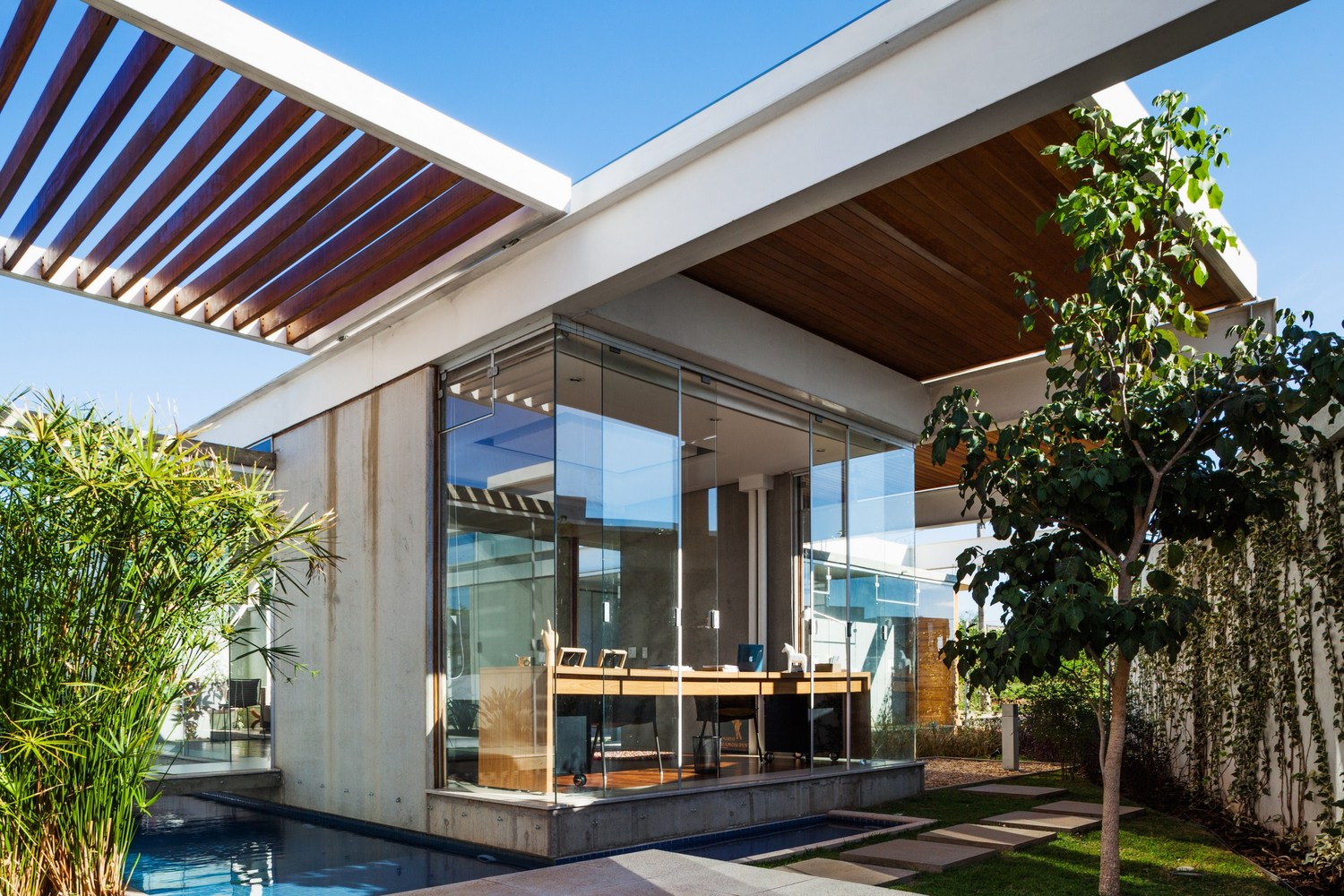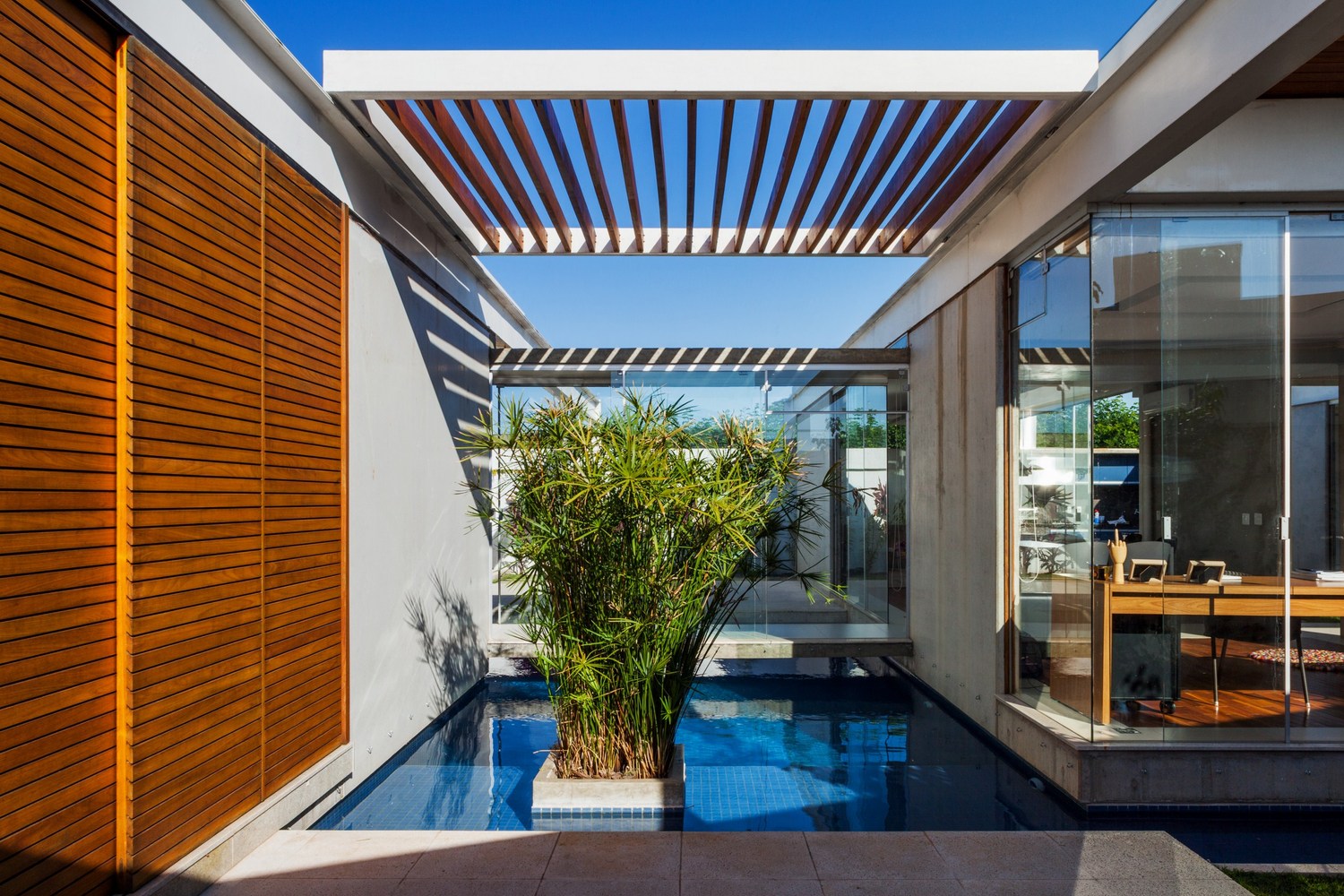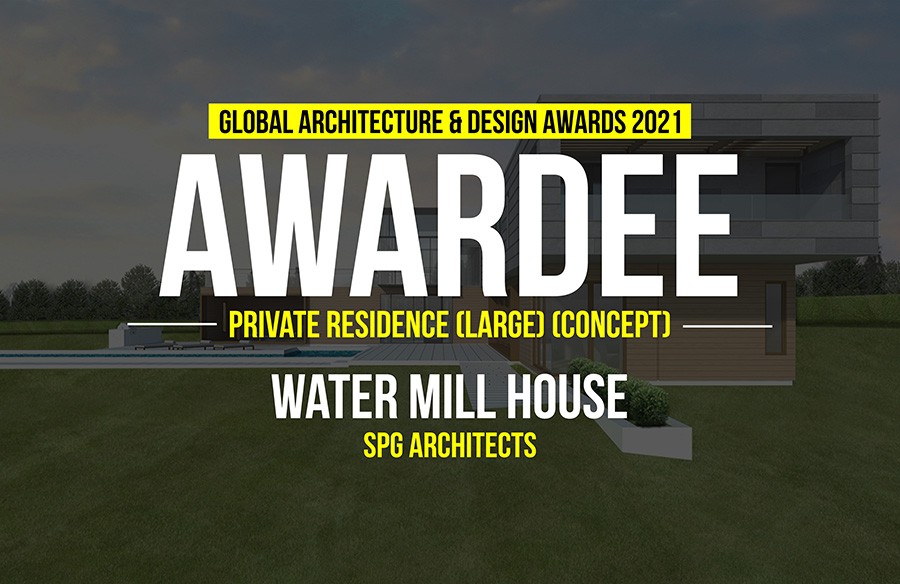In a 500m² (598yd²) site, we were faced with the proposition of designing a reasonably simple house program. The client, a professor specialized in technological development, desired some unusual solutions. His wife, in the other hand, longed for a rather traditional type of residence that also took the most advantage out of the given site.
Architect: Fernando Forte
Team Members: Fernando Forte, Lourenço Gimenes, Rodrigo Marcondes Ferraz
Country: Brazil

With these facts in mind, we designed a house which had in its key point the implantation: we divided the many sector of the residence in small volumes and located them at strategic points along the site. Upon being walled at its limits, the house could be turned inside, rather than outside, creating thus a patio house. The point is to discuss the inside and outside spaces: upon closing the site in itself and situating the program in different “blocks” within the bounded area, we managed to create a positively tense, although purposefully blurred, boundary between built and unbuilt space, bestowing different characteristics upon said spaces. The limits of the building space thus became, in the beholder’s gaze, the walls that enclose the site, and not the interior walls that traditionally limit a certain room. This paradigm change in the environment perception is central to the design’s reasoning; a 160m² (191yd²) thus receives the vastness of a 500m² (598yd²) home. In order to enhance this feeling even further, as well as to make the gardens part of the interior, the exterior walls are washed with lights at night, intensifying their position as the true limits of the house

The block positioning in the general program setting followed a predetermined modulatory theoretical mesh. Steel beams were positioned respecting said grid always reaching the site external walls, upon which they rest. The framing has multiple roles in the grand home scheme: bracing the precast concrete structural walls, finishing the gutters and steel roofing and spatial organization of the different volumes that make up the house. However, they also work as suspended railings for the pergolas and top coverage modules, so that they can be moved from one side to the other of the site, following the dwellers’ whims and wishes. The possibility of modifying the shading and protection of different parts of the residence according to the occasion or need (thus altering the very character of each individual room, and the manner in which the residents perceive them) thus becomes part of a more dynamic day-to-day life.

Glazed enclosing and a pool meticulously implanted upon the site close the house’s general composition in which, in spite of its simplicity and prägnanz, reveals a large amount of information when more meticulously witnessed, becoming an architectural rehearsal upon possibilities and perception.
Next Post
Leicester House | SPG Architects
2 Mins Read





